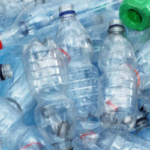When we think of disease detection, we often envision high-tech medical devices and sophisticated diagnostic tools. However, nature has equipped certain animals with remarkable abilities to detect human diseases. These animals use their keen senses, primarily smell, to identify illnesses that even the most advanced medical equipment might miss. Here are ten incredible animals that play a surprising role in healthcare:
1. Dogs
Dogs are renowned for their powerful sense of smell, which is estimated to be 10,000 to 100,000 times more sensitive than humans’. This extraordinary olfactory capability allows them to detect various diseases, including cancer, diabetes, malaria, and even COVID-19. Trained medical detection dogs can sniff out volatile organic compounds (VOCs) that are unique to specific illnesses, providing an early and non-invasive diagnostic method.
2. Rats
African giant pouched rats have been trained to detect tuberculosis (TB) in sputum samples with impressive accuracy. These “HeroRATs” can screen hundreds of samples in a single day, significantly faster and more cost-effective than traditional laboratory methods. Their acute sense of smell enables them to identify the TB bacteria, helping in early diagnosis and treatment.
3. Honeybees
Honeybees possess an exceptional sense of smell, which researchers have harnessed to detect diseases like tuberculosis and even certain cancers. By training bees to associate specific scents with a food reward, scientists have demonstrated that these insects can accurately identify biomarkers associated with various illnesses.
4. Cats
While not as widely recognized as dogs in disease detection, cats have shown an uncanny ability to sense changes in human health. There are numerous anecdotal reports of cats detecting illnesses like cancer, diabetes, and epilepsy. Some cats have been known to alert their owners to imminent medical crises, such as seizures or low blood sugar episodes, by exhibiting unusual behavior.
5. Pigeons
Pigeons, surprisingly, have demonstrated an ability to distinguish between healthy and diseased tissue samples in scientific studies. Trained pigeons can identify cancerous cells in biopsy images with a level of accuracy comparable to human pathologists. This ability is thought to be due to their exceptional visual discrimination skills.
6. Mice
Mice have been genetically engineered to express specific human olfactory receptors, enabling them to detect diseases through scent. In experiments, these modified mice have successfully identified the presence of lung cancer and other illnesses by smelling breath samples. Their small size and ease of training make them valuable in medical research.
7. Dolphins
Dolphins have been observed to detect illnesses in other marine animals and humans through echolocation. This ability to sense changes in the body’s internal structures has prompted research into their potential for detecting human diseases, such as cancers and internal injuries, though this field is still in its infancy.
8. Horses
Horses have shown an ability to sense changes in human emotional and physical states, which can be crucial for detecting diseases. Equine-assisted therapy has highlighted instances where horses responded to undiagnosed medical conditions in humans, prompting further investigation and leading to medical diagnoses.
9. Ferrets
Ferrets have a highly developed sense of smell and have been used in research to detect avian influenza (bird flu). Their ability to recognize specific viral strains could be extended to human diseases, making them potential candidates for early detection of various infectious diseases.
10. Parrots
Parrots, with their advanced cognitive abilities and keen sense of smell, have shown potential in identifying certain health conditions. There are anecdotal reports of parrots alerting their owners to health issues such as cancer and heart attacks by exhibiting changes in behavior or vocalizations.



GIPHY App Key not set. Please check settings